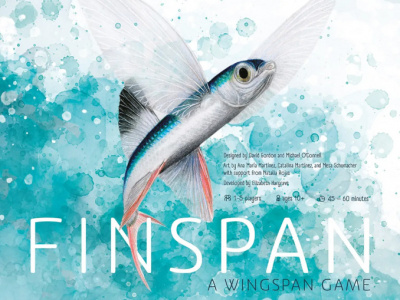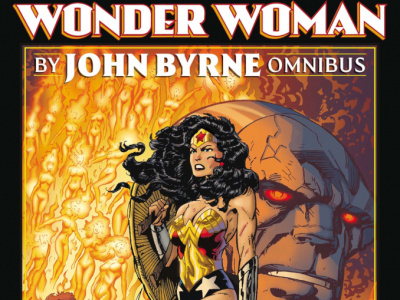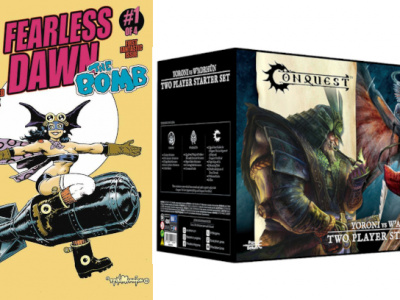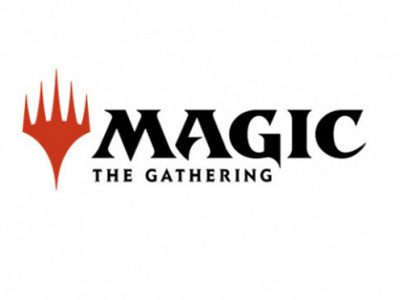Prompted by a flurry of Talk Back activity on ICv2.com discussing Magic Pre-Releases, we recently interviewed two Wizards of the Coast executives, VP of Marketing Casey Reeter and VP of Organized Play Chris Galvin, to find out more about how Wizards organizes its Magic: The Gathering events, and how it controls its sales channels. In Part 1, we get an overview of the different kinds of Magic organized play events. In Part 2, we talk about why pre-release events are held outside of stores, and what impact those events might be having on sales made in brick and mortar stores. And in Part 3, we talk about Wizards' policies on Internet sales, and how it enforces them.
Can you describe the various types of Magic events that you run now?
Chris Galvin: There's a whole big, long battery of Magic events -- to name them all by type would be a very long list. There are great big Magic events, examples of which include things like the Magic Pro Tour and World Championships; a class of tournaments that are open to all players called Grand Prix Tournaments; and Pre-release Tournaments, which are open tournaments that get several hundred people each on average. Then there are more medium-sized level tournaments, for lack of a better word, city-level events, and a good example of one of those would be the Magic Qualifier Tournament, which is a sort of feeder for the Magic Pro Tour. Average attendance at something like that is 80-100 people. Last and certainly not least, we have the tournaments that happen in stores. The flagship of that class of tournaments is the Friday Night Magic program. Those are very locally based. Any store in good standing can opt in and run one, and they tend to get around 10-15 people on average.
Except for the Friday Night Magic Events, all of those are events that are run by tournament organizers?
CG: Just as a matter of terminology, every tournament has a tournament organizer, so when we toss around the word tournament organizer, that just means the person who is administratively responsible for running the event. So every tournament, however how big or however small, has a tournament organizer.
Some tournament organizers who run the medium and large size events are also retailers. And some tournament organizers who run the medium and large size events, the ones that are not predominantly based in retail stores, are not retailers.
We've heard the term Premier Tournament Organizer. Is that a term you use?
CG: Yes. Those medium and large size events are run on a contract basis. There are ultimately a limited number of those events. We build the schedule up ourselves and then we execute contracts with people to run them. We sometimes refer to the people who sign those contracts as Premier Tournament Organizers or contracted tournament organizers. We refer to the entire system as our Event Properties System.
If we're understanding correctly, there are the events that happen in stores, there are events that don't happen in stores that are related to the Pro Tour and there are events that don't happen in stores that aren't related to the Pro Tour. Is that three buckets we can put those into?
CG: It's pretty close. I'd say you have 90% of the picture.
I think of it as we have big events and we have little events and we have medium sized events, and the venue that can host those events is whatever the appropriate venue is. So for example, for some of these medium sized events, they might happen in a store if there is a store that's large enough to hold them and if that's the way the contract is executed.
The biggest events, the Pro Tours, the Grand Prix, the Pre-releases, those are just too big to fit in stores. None of those happen in stores.
For the smaller events, tournament organizers are always retailers, is that right?
CG: In the precise sense of the tournament organizer being the person that we have on record as administratively responsible for the tournament, no, but I would say that probably in about 90% plus of the cases they are retailers or employees of retailers.
And the pre-release event organizers are sometimes retailers and sometimes not?
CG: Pre-releases almost without exception are too big to fit in retail stores. Now the people we have contracts with to run pre-releases might, in addition to running their contract event business, also be retailers or might not be. It's roughly a 50-50 split.
So about half the people that are running pre-release events are retailers?
CG: Right.
Are these contractors paid?
CG: They run these big events as a business, and they have a contract with us where we stipulate how much revenue they get and how much revenue we get, all the revenue coming from the event. I can't go into details because our contracts are confidential.
So it's a rev share?
CG: Yes.
Could you describe the different roles that these different types of events play in developing the Magic: The Gathering market?
CG: The goal with Wizards of the Coast is just to maximize the total number of people playing Magic. So the role of each of these different kinds of tournaments is to provide a distinct experience that Magic players want. We know what Magic players want because if the tournament is successful, if we get attendance and people show up, then we know that we're serving a segment of the Magic playing populace. If the attendance goes up year over year, we know that we are growing the total size of the Magic player base. So, the roles of different tournaments are all really the same; the roles of the different tournaments are to raise the total number of Magic players.
There are different types of events, so they go about that goal in different ways. Would that be a fair characterization?
CG: Sure. Sometimes what people want the most is access, right? It's Friday night, I've got nothing in particular to do, there's nothing on TV. I want to go hop in my car, go 20 minutes down the street and play in a Magic tournament for two hours.
Sometimes what people want is a big event with a capital 'E,' they want the road trip experience. They want to wake up at 5 a.m. and load in a van with their buddies and drive across the state and play in a big tournament and have a weekend-long event that they can tell stories about for a couple of months. Then there's all kinds of things in between. We want different kinds of events that fit all of those different niches.
And does that serve a different kind of player or are the same players going to all these different type of events?
CG: Largely it serves different classes of players. There's overlap, of course, but let me give you a concrete example. In a typical pre-release round, say anything from the Time Spiral block, there were about 20,000 people who participated. For recent Magic Game Day events, again roughly speaking, in
So there are lots of people who want that big event experience, and they go for that, and there are lots of people who want ease of access and go to their corner store, and they go for that, and there are some people who want both.
Does this also segment out by types of prizes?
CG: We have this entire battery of tournaments called the Pro Tour and the Pro Tour offers substantial cash prizes, likewise with the Grand Prix tournaments. But that doesn't map to big tournaments have prize money and small tournaments don't. It doesn't map like that. There's a class of tournaments, some of them big sized and some of them medium sized that offer cash prizes, and then there's also plenty of big and medium sized tournaments that don't have cash prizes.
They have special cards, though?
CG: Probably our most frequently used kind of tournament prize support is cards--cards that are unique to a type of event, and those are pretty evenly much spread around everywhere. We have special cards for Friday Night Magic, we have special cards for Magic Pre-release Tournaments, we have special cards for the Magic Grand Prix Tournaments, and so on.
Click here for Part 2.
The Magic Events Portfolio
Posted by ICv2 on September 13, 2007 @ 11:00 pm CT
MORE NEWS
Game Tariff News Round-Up
April 23, 2025
News on the new 145% import taxes on games manufactured in China is rolling in, and we round it up here.
This Fall
April 23, 2025
DC Comics will collect the John Byrne run on Wonder Woman (1987 series) in omnibus format this fall.
MORE GAMES
On ICv2 Direct
April 23, 2025
This week, ICv2 Direct is featuring one- and two-player starter sets for the new faction for Para Bellum's Conquest, and comics from Asylum Press.
Unbans Cards, Adds More Game Changers, and More
April 22, 2025
Wizards of the Coast announced changes to the Magic: The Gathering Commander format on April 22, 2025.







